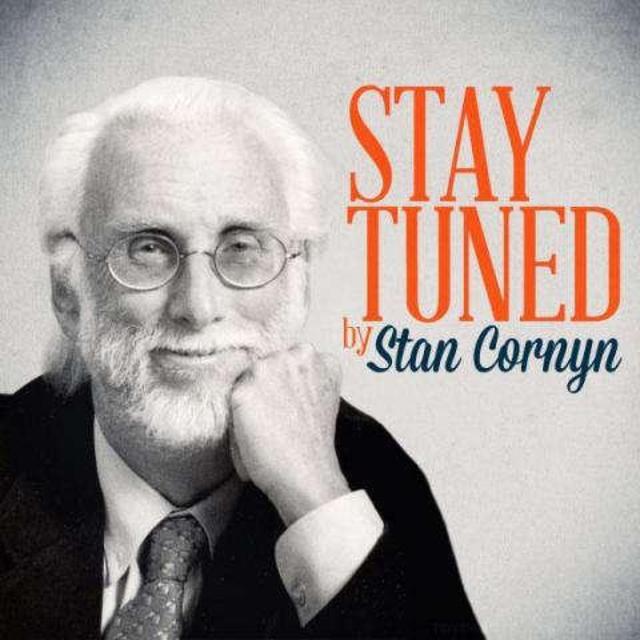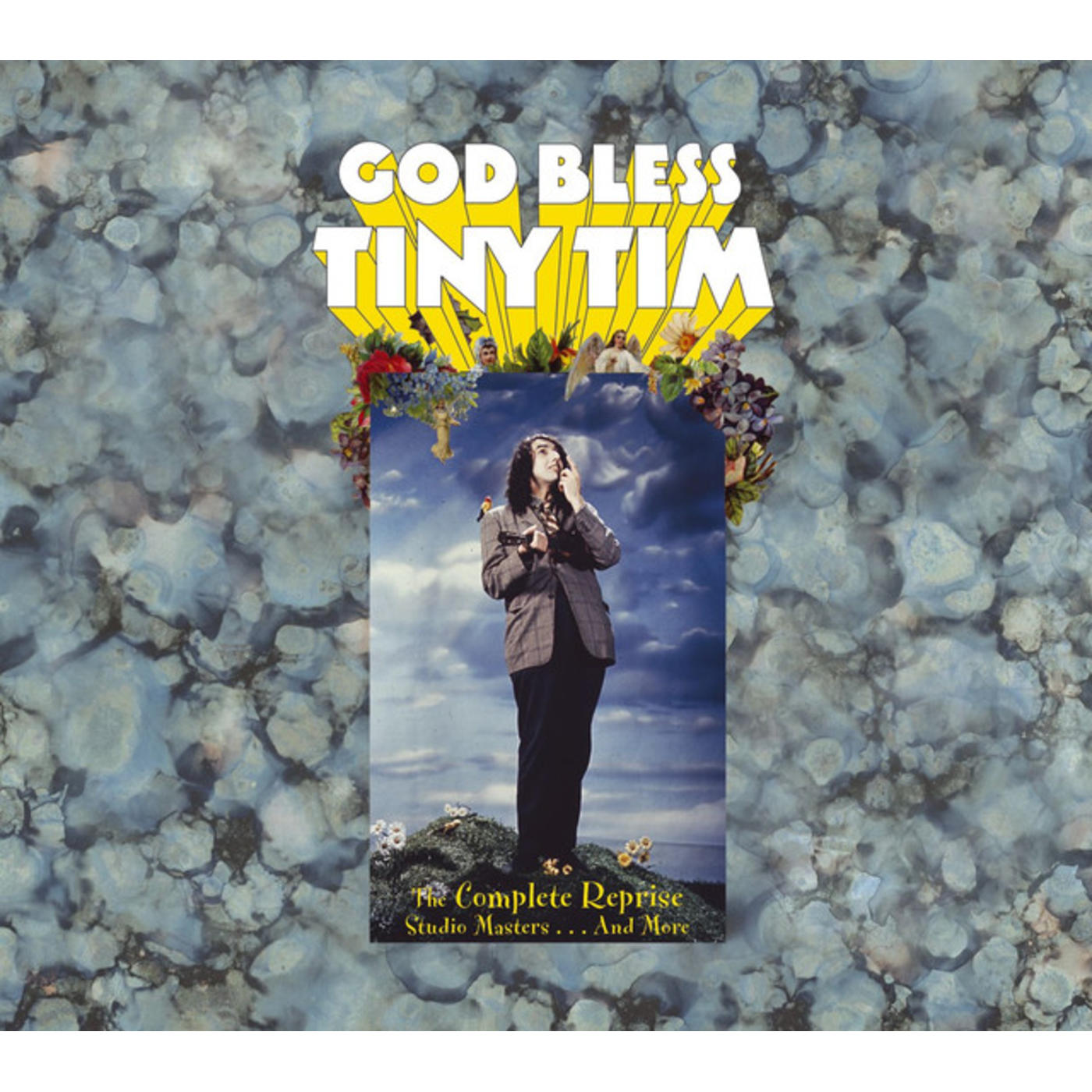Stay Tuned By Stan Cornyn: Tiny Grows Up

Every Tuesday and Thursday, former Warner Bros. Records executive and industry insider Stan Cornyn ruminates on the past, present, and future of the music business.
One night in Manhattan, in 1967, Mo Ostin asked me to go see a new country act with him. We walked over to a club called The Scene on the west side’s Eighth Avenue and 46th. A seedy area. Down some stairs, and we waited at a table, the only customers in the room.
We were too early for the evening crowds that had made The Scene one of the “must be at” spots, a club that had already featured, pre-famous acts like Jimi Hendrix and the Doors.
So, too early, Mo and I chatted. He asked me for the names of the two back-up guys in Jimi Hendrix’ group; I fumbled with their names. I asked him about this country act we were to see; he fumbled with that. But I asked for a glass of wine, specifying “rouge,” since I’d lived a year in Paris.
While sipping, a strange long-haired freaky fellow walked up to the front of the room. Freaky because this guy wore white-ish makeup. He carried a shopping bag with a ukulele in it. Without tuning it, he just started to sing. His voice was falsetto! Like imitating Shirley Temple or … or like he was some castrato. With abandon, he sang “Tiptoe Through the Tulips.”
I glanced, embarrassed, at Mo. Mo was interested. He’d been tipped about this artist, Tiny Tim, by Peter Yarrow, of Peter, Paul & Mary. Peter had told Mo that Tiny often opened for big acts at this club.
I felt genuinely sorry for Mo that he had to sit through weirdo. To my astonishment, just as the crowds stated coming in to The Scene -- jet setters and motorcycle geeks -- Mo agreed to sign Tiny Tim to Reprise.
As months went by, I decided to learn about where an act like this Tiny Time falsetto came from. (Castration, I read, had been banned in 1903, so that was not in this act’s history. But what was?
-- Stay Tuned:
The Hidden Histories of Herbie
Herbert Buckingham Khaury was his full name, and he was born in 1932 in Manhattan. His parents were Tillie and Butros Khaury, both workers in the midtown Manhattan textile business.
In the Khaurys’ humble home, Herbert listened intently to music: their phonograph. His mother had started singing when she was two. The Khaurys bought their boy a violin. Taught him how to grow up “nice.”
He got somewhat through school – upper Manhattan’s PS 169, then George Washington High – until in his junior year, he was asked to drop out. Herbie got work as a messenger boy during the day. His focus was the evening. He’d learned all the old songs, the repertoires of Rudy Valley, Irving Kaufman, Ada Jones (way way back songwriters).
When he reached age 20, Herbert one day realized while singing along to the Khaury’s home radio that “Gee, it’s strange. I can go up high as well.” He entered a local talent contest and sang “You Are My Sunshine” in falsetto. His focus had become … to be a singer, a performer. Whatever that took.
Out on his own, Herbie’d call home three times a week.
Herbie, his nickname, set out to sing. Wherever. He starved at his work, for years. “Every night,” he once explained, “I used to go into every bar in Brooklyn and ask if I could sing for my supper. Most of the time, they threw me out. But I never gave up. I was not one to quit.”
He met a booker for amateur talent at theatres, named Buddy Fryer. The rewards for amateur night: $5 for first place, $3 for second, $1 for third. Since the best talent went on last, Fryer booked Herbie first. He sang in his natural tenor. “I was so bad, people used to throw shoes at me. And once, a dear man in the back of the theatre turned on a siren to turn me off.”
In 1963, now 21, Herbie turned to falsetto. He went to New York’s Tin Pan Alley buildings, 1619 and 1650 Broadway, smiling as he walked in saying, “Hello there. I have with me today the #1 song hit of the nation. Are any of you dear ones interested?”
Usually not.
He started using stage names: Larry Love. Danny Dover, Emmett Swink, Vernon Castle, Julian Foxglove.
He got an agent, sort of. He and agent George King would split whatever came in, 50/50. “It was dear George who named me Tiny Tim.” George had just booked Herbert into a club that favored short performers. So now “Tiny,” as he now was getting called, soon got booked “into the big Fat Black Pussycat at $10 for a weekend.” It was way down, Third Street. But Tiny Tim had an audience.
Tiny was not tiny; he was over six feet tall. And he sang and sang through Greenwich Village dives where it was sometime tough to tell the sex of the paying customers.
And then: to The Scene. And from Yarrow to Ostin. To getting a deal with Reprise.
Getting Tiny to Grow
To turn Tiny into an artist who reached a major public, Mo Ostin turned as was his habit to friends and colleagues in the business. First of these was manager Roy Silver, who’d already done well for Warner-Reprise with Bill Cosby. Deal done.
Silver then linked Tiny to press agent Joe Sutton, to start the buildup. No one objected when Tiny hid his childhood of scrambling for anything back in New York. He, his soprano uke, his make up, it was as if Tiny Tim had just been discovered, all grown up and kind of queer. (His make up costs were high -- $700 a buy – and Roy Silver would not pay for those.)
Reprise and Co. landed Mr. Tim a spot on the TV hit series, Rowan and Martin’s Laugh-In, on NBC. Tiny uke’d and sang a falsetto medley of “A-Tisket, A-Tasket” and “On the Good Ship Lollypop” while Rowan and Martin stared, open-mouthed.
The public embraced Tiny Tim on NBC. Tiny came back again and a third time, when he unveiled “Tiptoe Through the Tulips.”
He gave interviews. Tiny would regularly be questioned about his gender preferences. “Girls.” He’d respond. “I love women, although they must not be touched before marriage. Sometimes it’s difficult but I have learned to resist temptation. My mother, my dear parents, they taught me to be so careful of” and here he spelled out the word so as not to stain his soul… “s-e-x.”
Tiny had his act down, fairly pat.
Making That First Album
While becoming a celebrity, Mr. Tiny was also in the studio with Reprise producer Richard Perry, cutting what would turn out to be his first recording. God Bless Tiny Tim. It had an orchestral version of “Tiptoe.” That became a hit single.
Tiptoe through the window
By the window, that is where I'll be
Come tiptoe through the tulips with me
Oh, tiptoe from the garden
By the garden of the willow tree
And tiptoe through the tulips with me
Knee deep in flowers we'll stray
We'll keep the showers away
And if I kiss you in the garden, in the moonlight
Will you pardon me?
And tiptoe through the tulips with me
Doing Sonny and Cher’s “I Got You Babe,” Tiny sang both the boy’s and girl’s parts, thanks to multi-track recording skills. Another audience treat.
The album took off.
Tiny’s managers knew how to fly after take-off. The asking fee for Tiny to do a concert moved from $5 a night up to $5000 guaranteed against 40% of the gross. He played Vegas.
At concerts, Tiny did his act: walks out dressed like an unmade bed. Strums his uke, shrieks and giggles, and sings to get belly laughs.
Engaging
For a Christmas Party being held at Mr. Stan’s house, producer Richard Perry asked if Tiny could be invited. Tiny brought his uke. For more than an hour, he sang up high, carols of Christmas interlaced with carols from Valentine’s and Groundhog’s Days, while party guests squirmed politely.
A Reprise star was standing up there. His single, “Tiptoe,” had already sold around a quarter million singles, and his new album would sell the same number of LPs. We at the party had become used to being in the same room with longhair, angry-looking freaks, but this one, he was lovable. And a money-maker, too.
Tiny’s popularity rose to another peak when, on December 17, 1969, he got married. On television, of course. With 21.4 million watching Johnny Carson’s Tonight Show, Tiny Tim married his girlfriend, Victoria Mae Budinger (“Miss Vicki”). She was 17; he was 37, The marriage lasted eight years, two of them spent together, and produced a daughter named, of course, Tulip. Tulip Victoria Khaury.
But Tiny Tim’s time at Reprise had been reassessed now as “a fad.” Fads fade fast. Tiny’s sales collapsed after the “Tiptoe” album. Sadly, it became time to move on at Reprise.
And move on for Tiny Tim.
-- Stay Tuned
Where Are They Now:
The Scene: The club closed in 1970. But the Fat Black Pussycat remains open, wide open, in the West Village. It’s had nine lives, and now even offers “happy hour.”
Miss Vicki: Remarried several times, and has four grandchildren by her daughter with Herbert, Tulip Victoria.
Herbert Khaury: After Reprise, his career quickly descended. Tiny lived alone for years in a $750-per-month hotel room in Iowa. He dieted on raw potatoes, beer, and tomato sauce. He expanded to 250 lbs., played small clubs, wore funnier jackets, married twice more, and at last died at a performance at the Women’s Club of Minneapolis at age 65, on Nov. 30, 1996. That evening, his third wife, Sue, was there. She recalled, “He died in my arms, my arms around him,” she said, “and the last thing he heard was applause.”
His First Albums:
After “God Bless Tiny Tim”:
In 1968, Mr. Tiny recorded Tiny Tim Live at the Royal Albert Hall, but Reprise declined to release it. In 2000, it came out via Rhino Handmade.
In 1968, his second “official” album, Tiny Tim’s 2nd Album. His parents are on the cover with him.
In 1969, he recorded For All My Little Friends, children’s songs; on Reprise; it got a Grammy nomination.
In 1976, he recorded I've Never Seen a Straight Banana, which came out on the Collector’s Choice label.
And Beyond: In the decades following Reprise, Tiny Tim worked the world, and recorded and recorded, albums and singles, maybe just for some DJ on a whim. His new records out on over 30 obscure labels. But his early biggies, they can still be found.

